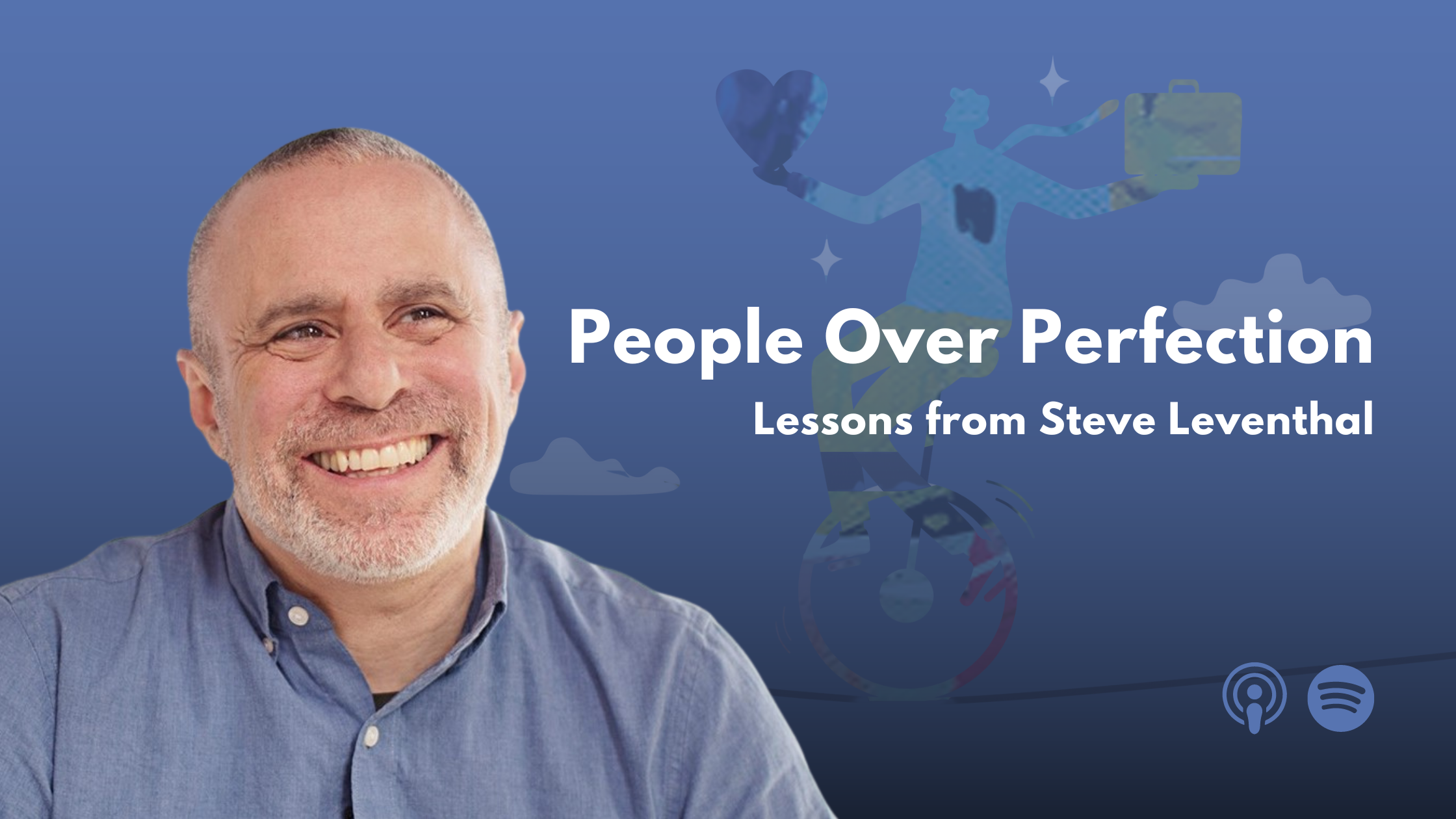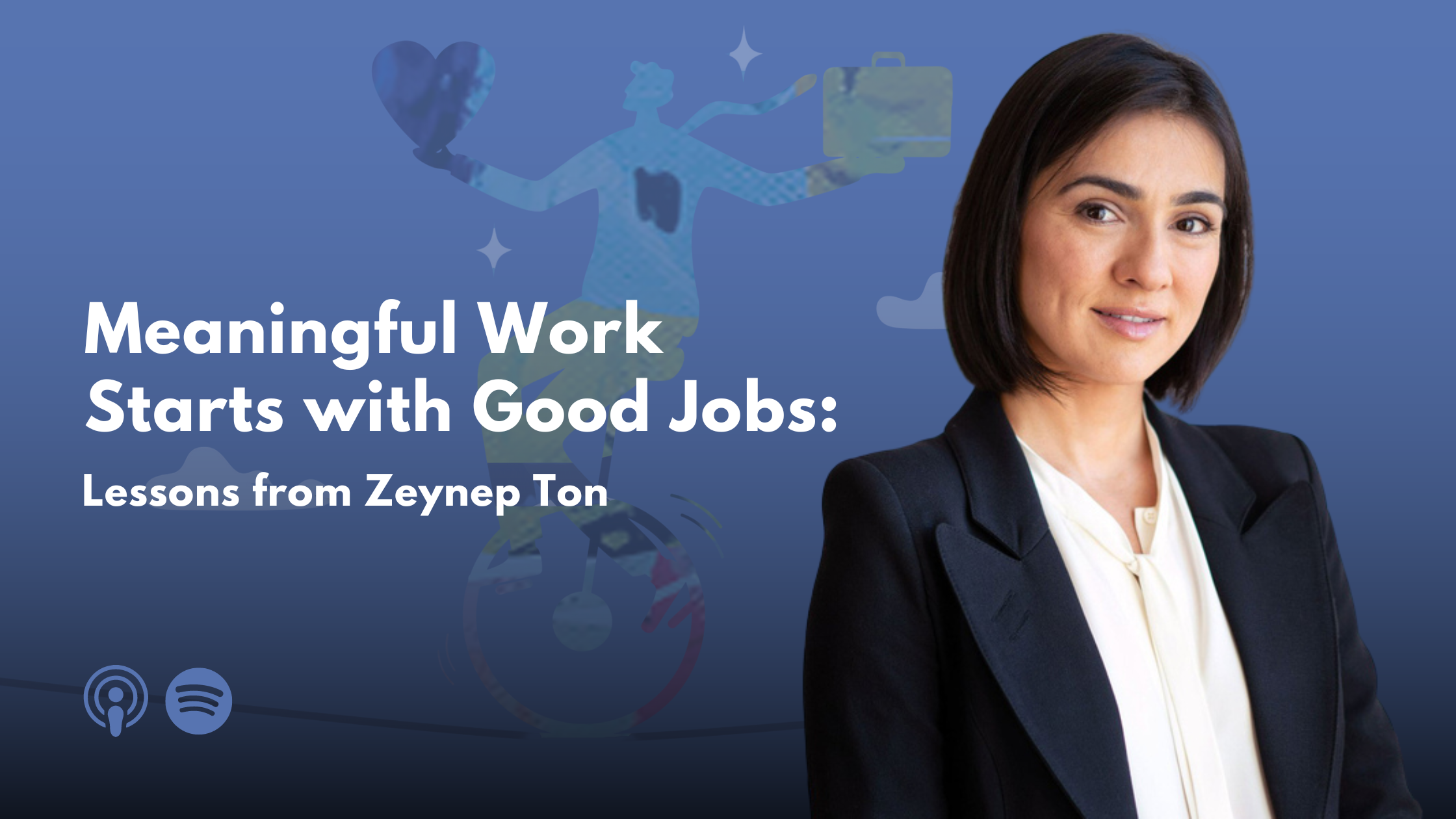This Meaningful Work Matters episode features Steve Leventhal, founder and CEO of WorldBeing. Leventhal shares his perspective on the role of meaningful work within a global social impact organization.
Before pursuing this work, Leventhal had survived a near-fatal car crash, which shifted his perspective on work and his purpose in life. He founded WorldBeing, which he runs alongside his wife, Kate Sachs Leventhal, to empower under-served adolescent youth, especially girls and young women, to help them unleash their inner potential and thrive despite adversity and conflict.
In 2019, Leventhal received the ‘Outstanding Practitioner Award’ at the 2019 World Congress of Positive Psychology for advancing positive psychology practices in ethical and evidence-based ways.
Operationalizing Organizational Values
Leventhal discusses WorldBeing's unique approach, which focuses on developing internal skills and empowering individuals from the inside out. Their programs aim to reimagine self-identity and build emotional intelligence, communication skills, goal-setting abilities, and more. This contrasts with traditional international development approaches that focus more on external infrastructure development.
Leventhal and his organization have built internal training programs that mirror those facilitated externally to foster a deeper connection between the beneficiaries of WorldBeing and its facilitators and ensure the authentic adoption of values within the organization.
The Dark Side of Meaningful Work
Leventhal shares that he has seen the ‘dark side’ of meaningful work due to the challenges and issues his organization aims to address, which are pervasive and devastating to witness. He notices a difference between people who can approach the work from a place of love versus anger. While the anger is justified, it’s an unsustainable resource. Love, connection, and empathy have a more inexhaustible energy to put towards the work. That’s where Leventhal feels the approach to meaningful work must remain intentional and mindful, or else it can easily ‘take you over’.
What The Research Says
There are numerous positives to engaging in deeply meaningful work from a retention, engagement, and performance perspective. However, when the work has a very high moral stake, there is a higher likelihood that people will ‘give it their all’. As Bob Vallerand would describe it, they can go into ‘obsessive passion’ mode. That effort can open them up to work harder and for less, leading to burnout, compassion fatigue, empathy overload, etc.
Carrie Oelberger, who has studied the dark side of meaningful work, particularly for those who work in international aid. The mediating factor that Oelberger uncovered is a concept called ‘boundary inhibition’. This is when meaningful work takes over one’s life and annihilates the boundaries between work and life. The exception is when there is a deep values alignment between the worker and their closest personal relationships. In some ways, the values alignment can make the work even more meaningful and enjoyable.
Leventhal leads WorldBeing alongside his wife, and expresses immense gratitude and appreciation for participating in this work with his partner. The research rings true!
Co-Creating A Shared Values System
Leventhal reflects on the early days of founding his nonprofit and walking a fine line between pushing his envisioned values and listening to what his staff wanted to emulate and foster. At the time, his staff did not have the experience of working for an organization that asked the questions he did, such as: What kind of place do you want this to be?
They mutually landed on values like authenticity, deep listening, forgiveness, and empathy while insisting on accountability. The culture at WorldBeing is a living and breathing result of Leventhal’s vision that also reflects his workforce's genuine aspirations and sentiments.
Leventhal leaves us with two of his organization’s guiding principles: every moment is a choice between love and fear, and perfection is not an option.
For those seeking further exploration:
The Dark Side of Deeply Meaningful Work - Carrie R. Oelberger
The Two Faces of Persistence - Robert J. Vallerand, Tanya Chichekian, Jeremie Verner-Filion, and Jocelyn J. Belanger


















